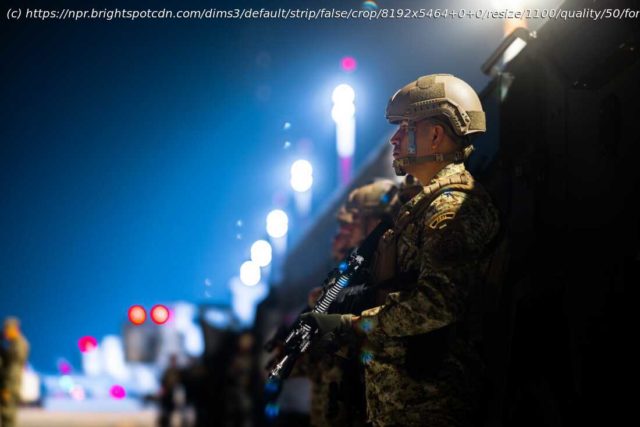The fight over the rarely used wartime power has become central to Trump’s immigration crackdown agenda and his efforts to stretch the powers of the executive branch.
The Trump administration received pointed questions from a judge over how it’s implementing a rarely-used wartime law to deport Venezuelans suspected of being Tren de Aragua gang members.
A president last invoked the Alien Enemies Act after the attack on Pearl Harbor, designating Japanese, German and Italian nationals as „alien enemies“ during World War II.
„Nazis got better treatment under the Alien Enemies Act than what has happened here“, D.C. Circuit Court of Appeals Judge Patricia Millett said during a hearing at the court on Monday. „And they had hearing boards before they were removed.“
„People weren’t given notice, they weren’t told where they were going“, she said about the removal of Venezuelans and others to El Salvador earlier this month.
Lawyers with the Justice Department are asking the appeals court in Washington to overturn a temporary restraining order blocking deportations under the act put in place by district court Judge James Boasberg. A ruling to lift the temporary pause on deportations, or keep it in place, is likely to prompt an appeal to the U.S. Supreme Court.
The fight over the rarely used wartime power has become central to Trump’s immigration crackdown agenda and his efforts to stretch the power of the executive branch.
The panel of three judges did not deliver a decision from the bench but could do so in the coming days.
Judge Millett appeared sympathetic to the arguments of immigrants rights groups who sought to block immediate deportations, but it is unclear which way Judge Karen Henderson, a George W. Bush appointee, was leaning.
According to court documents, if the judge lifts the pause, some 258 people would likely be placed in removal proceedings under the Alien Enemies Act for being alleged members of Tren de Aragua.






